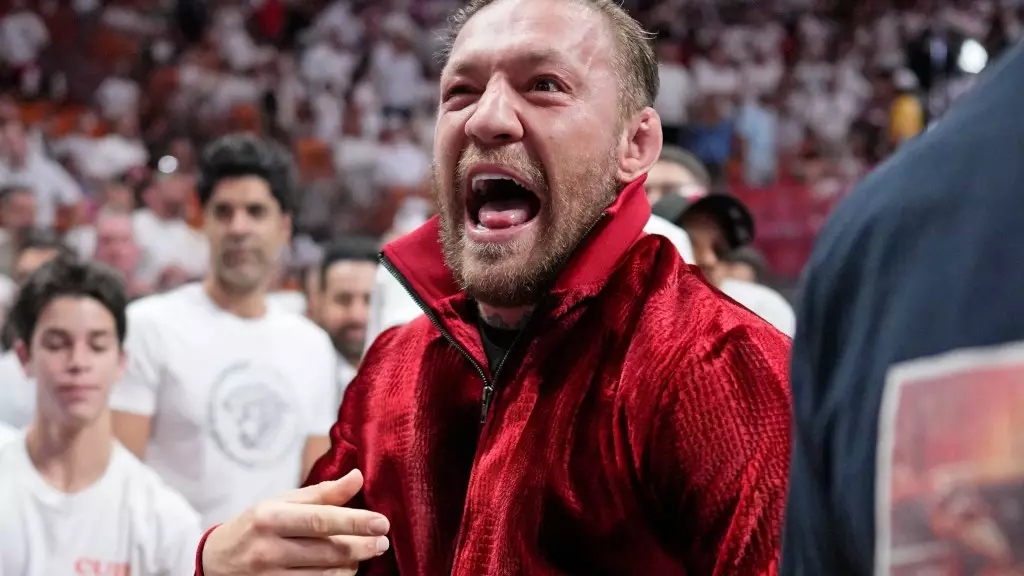Conor McGregor’s anticipated return to UFC action has been marred by uncertainty and disappointment. Originally slated to face Michael Chandler at UFC 303, McGregor’s withdrawal due to a pinky toe injury has triggered a series of reactions from fans and fellow fighters alike. Chandler, who has patiently awaited McGregor’s return since their time on “The Ultimate Fighter” in early 2023, has opted to shift his focus to a rematch with Charles Oliveira at UFC 309 on November 16, 2023. This pivot not only showcases Chandler’s adaptability but highlights the growing frustrations regarding McGregor’s commitment to fighting.
One of the more outspoken figures in the mixed martial arts community, Ben Askren, has not held back his critique of McGregor in light of the recent developments. On his show with Daniel Cormier, Askren suggested that McGregor’s personal choices are significantly impacting his professional life. He posited that McGregor’s lavish lifestyle and party habits might suggest a deeper issue, declaring that the former champion exhibits signs of addiction that are overlooked due to his wealth and fame. “It’s pretty obvious to me that Conor McGregor is an addict,” Askren declared, citing McGregor’s consistent partying as a deterrent to his training and overall readiness for competition.
While Askren’s comments are both harsh and controversial, they resonate with a growing sentiment among fans and pundits questioning McGregor’s dedication to the sport. In an environment where discipline and training are paramount, observers are left to wonder if McGregor’s lifestyle is leading him away from the octagon rather than toward it.
Despite his critics, McGregor has maintained a public persona that capitalizes on his charisma and the intrigue surrounding his potential return. He claims to be undergoing regular drug testing and suggests that he’s prepared to fight, asserting that he is ready for competition whenever the opportunity arises. However, his perceived inability to make it to the octagon raises pivotal questions about the integrity of his statements and his commitment to returning to elite-level fighting.
UFC President Dana White’s skepticism regarding McGregor’s comeback further exacerbates the situation. White has expressed doubt about whether the former champion will ever return to form, especially given McGregor’s history of delays and cancellations. The mixed messages from McGregor and the UFC leadership only serve to amplify the uncertainty surrounding his future in the sport.
The unfolding saga of Conor McGregor serves as a cautionary tale about the pitfalls of fame and success in the brutal world of mixed martial arts. For fighters, commitment and discipline are crucial for achieving and maintaining peak performance. However, when personal lifestyles begin to intrude on professional obligations, the consequences can be dire.
As McGregor grapples with the consequences of his actions and lifestyle choices, the MMA community watches closely. Whether he can transition from a controversial public figure back to a serious contender remains to be seen, and only time will reveal if these challenges are surmountable or if they signify the twilight of McGregor’s remarkable career.

